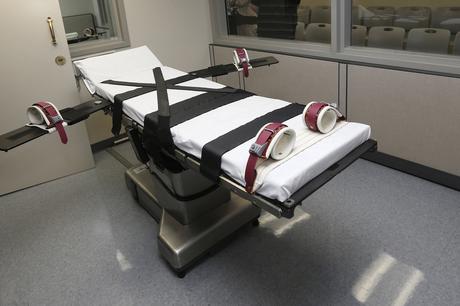
(Washington) Federal executions of death row inmates, which were to resume Monday after 17 Years of interruption under the impetus of the government of Donald Trump, were suspended to last minute remedies in the face of opposition from relatives of the victims or from religious circles.
Published on 13 July 2020 to 13 h 09 Updated to 16 h 56
Charlotte PLANTIVE
France Media Agency
Federal judge Tanya Chutkan, sitting in Washington, agreed on Monday morning with lawyers for Daniel Lee, who was to be executed in 16 h by lethal injection at the penitentiary of Terre-Haute, in Indiana, and three other men who were to die by the end of August.
All have been sentenced to death by federal courts for the murder of children.
Former supporter of white supremacy, Daniel Lee, 47 years, was sentenced in 1999 to the death penalty for the murder of a couple and their 8 year old girl.
Judge Chutkan considered that these executions “short-circuited the legitimate judicial procedure”, while several appeals have not been settled.
The condemned claim in particular that the execution protocol – a lethal dose of pentobarbital – would make them suffer “irreparable” suffering in violation of the Constitution, an argument often used by opponents of the death penalty.
Unsuccessful on appeal, the Ministry of Justice appealed to the Supreme Court in the afternoon, finding Judge Chutkan's decision “inappropriate” and contrary to case law.
“Irresponsible”
In parallel, the mother of two victims, Earlene Peterson, 81 years, seized Monday with other members family of the American high court to obtain the postponement of the execution due to the epidemic of coronavirus.
They claim to be faced with an impossible choice between their right to attend the last moments of the convicted person and respect for their health.
Because an execution involves many people: “prison staff, lawyers, relatives of victims or accused, journalists, a chaplain …”, lists for AFP Robert Dunham, the director of the Center Information on the death penalty (DPIC), which refers to the subject.
It is “irresponsible to want to carry out so many executions in such a short time” in this context of health crisis, he added, denouncing a “political instrumentalization of capital punishment”.
In the United States, most crimes are tried at the state level, but the federal justice can deal with the most serious acts (terrorist attacks, racist crimes, etc.) or committed on military bases, between several states or on Native American reservations.
In the last 45 years, only three people have been executed at the federal level, including Timothy McVeigh, Oklahoma City bombing official (168 who died in 1995) in 2001. The last federal execution dates back to 2003.
After announcing last year the resumption of these executions, the Minister of Justice Bill Barr set their calendar in June, at the same time as the cases of new coronavirus were starting to increase in much of the country .
According to polls, support for the death penalty has eroded among Americans, but remains strong among Republican voters, who are 56% to be in favor of murderers.
“No more pain”
Donald Trump, who will run for a second term on November 3, regularly calls for an increased use of this ultimate sanction, in particular for police killers or drug traffickers.
To date, he has not responded to the numerous calls for leniency towards Daniel Lee.
“As a supporter of President Trump, I pray that he will hear my message: the execution of Danny Lee for the murder of my daughter and my granddaughter is not what I want and will bring more pain to my family, “said Earlene Peterson in an open letter.
She requests in particular that the death penalty be commuted to life imprisonment, which was given to a man who played a central role in the murders.
For their part, a thousand religious leaders, Catholic and evangelical, called on the president to “focus on the protection of life and not on executions” in these times of COVID – 19.
And the European Union asked him on Friday to “reconsider” a position which, according to it, “goes against a general tendency in the United States and in the world to abolish the death penalty , by law or in practice ”.
Twenty-two executions have taken place in 2019 in the United States and seven since the beginning of the year 2020.

